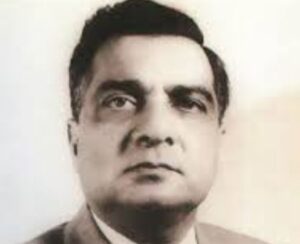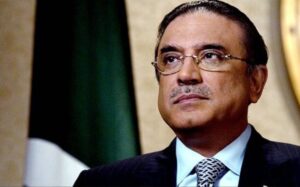Since its inception in 1947, Pakistan has witnessed numerous changes in its leadership, particularly in the presidential office. Below is a detailed table listing the presidents of Pakistan, and their tenure.
READ ALSO: Presidents That Have Ruled Indonesia Till Date
| S.No | President | Start of Tenure | End of Tenure |
|---|---|---|---|
| 1 | Iskander Mirza | March 23, 1956 | October 27, 1958 |
| 2 | Ayub Khan | October 27, 1958 | March 25, 1969 |
| 3 | Yahya Khan | March 25, 1969 | December 20, 1971 |
| 4 | Zulfikar Ali Bhutto | December 20, 1971 | August 13, 1973 |
| 5 | Fazal Ilahi Chaudhry | August 14, 1973 | September 16, 1978 |
| 6 | Muhammad Zia-ul-Haq | September 16, 1978 | August 17, 1988 |
| 7 | Ghulam Ishaq Khan | August 17, 1988 | July 18, 1993 |
| 8 | Farooq Leghari | November 14, 1993 | December 2, 1997 |
| 9 | Muhammad Rafiq Tarar | January 1, 1998 | June 20, 2001 |
| 10 | Pervez Musharraf | June 20, 2001 | August 18, 2008 |
| 11 | Asif Ali Zardari | September 9, 2008 | September 8, 2013 |
| 12 | Mamnoon Hussain | September 9, 2013 | September 8, 2018 |
| 13 | Arif Alvi | September 9, 2018 | 10 March 2024 |
| 14 | Asif Ali Zardari | 10 March 2024 | Incumbent |
The First President: Iskander Mirza

Born in Murshidabad, Bengal Presidency, British India (now in West Bengal, India), on November 13, 1899. Iskander Mirza was a civil servant and held various administrative roles in British India. He later served as the Governor of East Bengal and the Minister of Defense before becoming the President of Pakistan.
Notable Achievements
Iskander Mirza was pivotal in the early administration of Pakistan, especially in setting up its bureaucratic framework. He became the first President of Pakistan when the country adopted its first Constitution in 1956.
Downsides:
His tenure was marred by political instability, leading him to declare martial law in 1958. His decision to abolish the first Constitution and his authoritarian rule eventually led to his ousting by General Ayub Khan.
The Current President: Asif Ali Zardari

Asif Ali Zardari was born on July 26, 1955, in Karachi, Sindh, Pakistan, into a wealthy Sindhi family. His father, Hakim Ali Zardari, was a prominent landlord and politician. Zardari was educated at St. Patrick’s High School in Karachi and Cadet College Petaro.
Zardari entered politics after marrying Benazir Bhutto in 1987, serving as a close advisor during her tenure as Prime Minister.
During Bhutto’s second term, Zardari held this role, though his tenure was controversial due to corruption allegations. After Benazir’s assassination in 2007, Zardari led the PPP, eventually securing the presidency.
Achievements:
- Empowerment of Parliament: Zardari was instrumental in passing the 18th Amendment in 2010, reducing presidential powers and strengthening parliamentary democracy.
- Economic Reforms: His administration attempted to stabilize the economy through various initiatives, despite facing significant challenges.
- Social Welfare: Zardari launched the Benazir Income Support Program (BISP), a major social safety net for low-income families.
- International Relations: He worked to maintain Pakistan’s international standing, particularly with the U.S., amidst tensions.
Downsides:
- Corruption Allegations: Zardari’s presidency was marred by persistent accusations of corruption, damaging his public image.
- Economic Struggles: His administration struggled with an ongoing energy crisis and inflation, leading to public discontent.
- Security Issues: His tenure saw increased terrorism, with limited success in improving the security situation.
- Political Instability: Frequent clashes with opposition parties and controversial decisions led to political unrest.
The Current Vice President: Position Not Applicable in Pakistan
Pakistan’s political structure does not include a Vice President. The country operates under a parliamentary system, where the Prime Minister is the head of government, and the President is the ceremonial head of state.
Conclusion
The office of the President in Pakistan has evolved significantly since its inception. From Iskander Mirza’s controversial rule to Dr. Arif Alvi’s focus on digital transformation, each president has left an indelible mark on the nation’s history.
The role, though largely ceremonial in recent years, continues to be an essential part of Pakistan’s governance framework.
